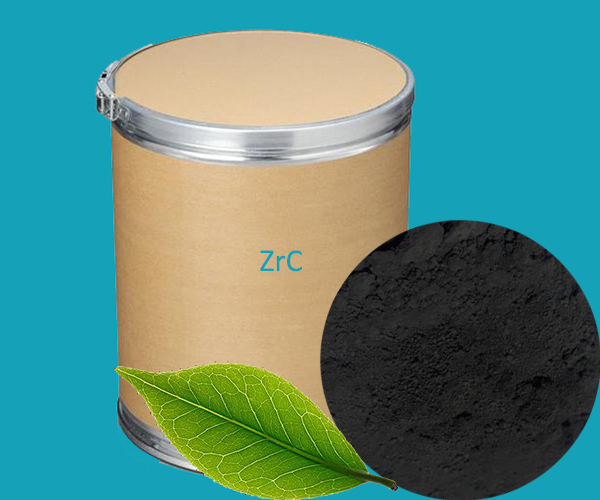Zirconium carbide (ZrC) is a high-temperature refractory with high hardness and high melting point. It is a gray, metallic cubic crystalline powder. It has a high melting point of 3540 °C, a boiling point of 5100 °C, and a density of 6.73 g/cm³. Zirconium carbide has a hardness between 8 and 9 on the Mohs scale and a microhardness of about 2700 kg/mm². It is insoluble in water and hydrochloric acid, but soluble in nitric acid, hydrofluoric acid, and hydrofluoric acid and hot sulfuric acid containing hydrogen peroxide. At high temperatures, zirconium carbide can react with chlorine to form zirconium tetrachloride, and above 700 °C it can be oxidized to zirconia.
Zirconium carbide is a material with unique physical and chemical properties, so it has a variety of uses, especially in high-temperature and wear-resistant environments. Here are some of the main uses of zirconium carbide:
1. High-temperature structural materials: Due to its high melting point and high-temperature resistance, zirconium carbide is used in the manufacture of high-temperature structural components in the aerospace industry, such as certain parts of jet engines.
2. Electrode material: Zirconium carbide's high conductivity and corrosion resistance make it an ideal material for electrodes in the electrochemical industry, especially in situations where high operating temperatures are required.
3. Refractories: In the metallurgical industry, zirconium carbide is used to make refractory bricks, refractory crucibles, and other refractory tools because it can withstand extreme high temperatures.
4. Ceramic materials: Zirconium carbide ceramics are used in the manufacture of cutting tools, wear parts, and bulletproof armor due to their high hardness and wear resistance.
5. Electron emitting material: Zirconium carbide's electron emitting properties make it an ideal material for vacuum electronic devices such as cathode ray tubes and microwave tubes.
6. Alloy additives: Zirconium carbide can be used as an additive for alloys to improve the hardness and wear resistance of alloys.
7. Nuclear industry: In the nuclear industry, zirconium carbide's high melting point and radiation resistance make it suitable for the components of certain nuclear reactors.
8. Production of zirconium metal and zirconium tetrachloride: Zirconium carbide is a key raw material for the production of zirconium metal and zirconium tetrachloride, an important chemical raw material.
 English
English Español
Español Português
Português Français
Français Deutsch
Deutsch Русский
Русский 中文
中文 日本語
日本語
